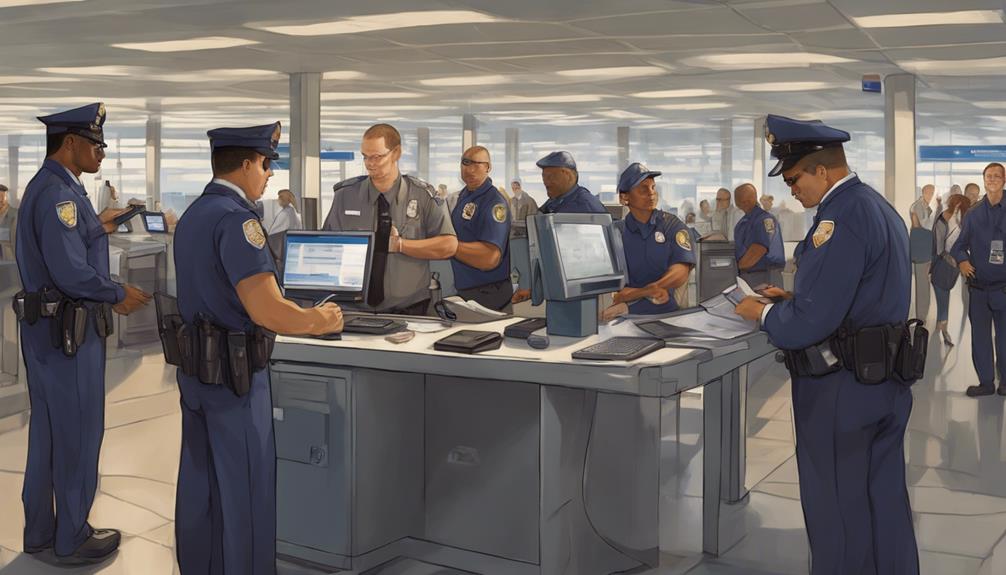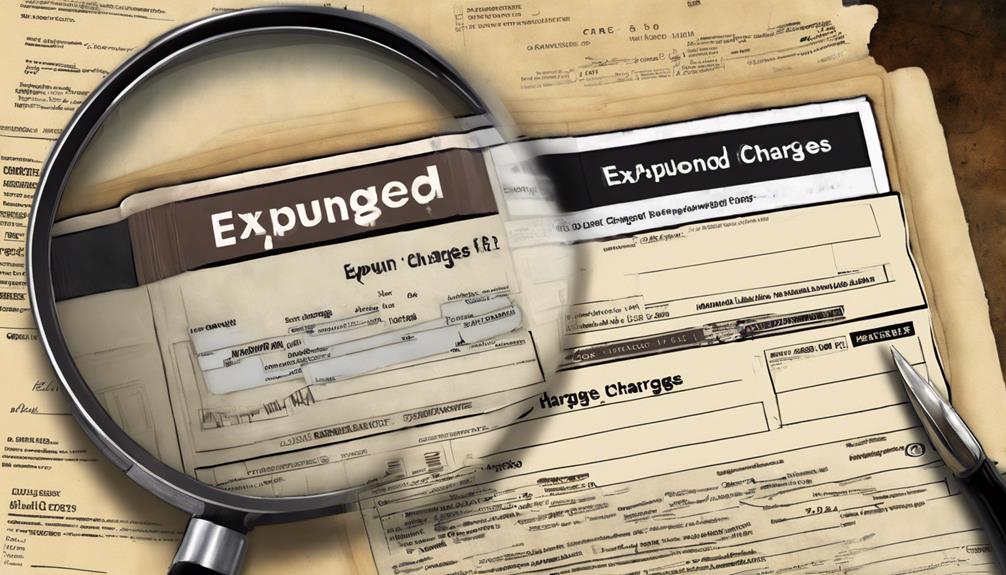Navigate the FCRA background check terrain with confidence. Guarantee fairness, accuracy, and privacy with strict compliance. Employers must seek candidate consent before delving into background checks, providing necessary notices along the way. Following FCRA guidelines is essential to avoid legal and financial pitfalls. Take key steps like obtaining consent, informing CRAs, and issuing necessary action notices. Complying with FCRA regulations establishes trust with potential applicants. For a smooth process, use separate disclosure forms, steer clear of violations, and consider reliable background check providers. Master FCRA compliance effortlessly to safeguard both parties involved.
Key Takeaways
- Start with a standalone notice and written consent.
- Notify the CRA and certify FCRA compliance.
- Issue pre-adverse and adverse action notices.
- Avoid combining waivers in consent forms.
- Partner with reputable background check providers.
Understanding FCRA Compliance

Understanding FCRA compliance is essential for employers conducting background checks to guarantee fairness, accuracy, and privacy.
The Fair Credit Reporting Act (FCRA) outlines strict guidelines that employers must adhere to when utilizing consumer reports for employment purposes.
Employers must obtain explicit consent from the candidate before initiating a background check. Additionally, they're required to provide proper notices to the candidate regarding the background check process and their rights under the FCRA.
In cases where adverse actions are taken based on the background check, employers must follow specific procedures outlined by the FCRA to inform the candidate and provide them with an opportunity to dispute any inaccuracies.
Failure to comply with FCRA regulations can result in severe financial penalties and legal consequences for employers.
Importance for Employers
Maintaining FCRA compliance is of utmost significance for employers due to the potential legal and financial risks associated with non-compliance. Securing adherence to FCRA regulations when conducting background checks is essential to avoid severe consequences, as seen in the increase of FCRA claims against employers since 2009.
Violating FCRA regulations can result in substantial financial settlements and expose employers to actual and punitive damages through lawsuits. By following FCRA guidelines, employers not only protect themselves from legal trouble but also establish a positive image with potential applicants.
Employers must provide standalone written notices and obtain written consent before initiating background checks to comply with FCRA regulations. Issuing pre-adverse action and adverse action notices to applicants based on background check reports is a key step in conducting FCRA-compliant background checks. Adhering to these processes secures legal compliance and fosters trust with potential applicants.
Conducting Background Checks

Employers initiating background checks under the FCRA must begin by providing a standalone written notice to applicants. This notice informs applicants that a background check will be conducted and guarantees transparency in the process.
Written consent from applicants is a fundamental requirement before proceeding with the background check to comply with FCRA regulations. Once consent is obtained, employers must notify the Consumer Reporting Agency (CRA) and certify their compliance with FCRA guidelines.
As part of FCRA-compliant procedures, applicants should receive a pre-adverse action notice if adverse information is found in the background check report. This notice allows applicants the opportunity to review the report and address any discrepancies.
If a final adverse action is taken based on the background check report, employers must provide applicants with a final notice of adverse action, outlining the reasons for the decision. Compliance with these steps guarantees that employers conduct FCRA-compliant background checks while respecting the rights of applicants.
Key Steps in Compliance
To ensure compliance with FCRA regulations, the process of conducting background checks involves several key steps that employers must follow diligently.
First and foremost, employers must provide a standalone written notice to applicants before initiating any background checks. Obtaining written consent from applicants is essential to guarantee FCRA compliance.
Once consent is obtained, employers must inform the Consumer Reporting Agency (CRA) of the consent and certify their compliance with FCRA requirements.
Additionally, applicants should receive a pre-adverse action notice if any adverse decisions are being considered based on the background check report. It's crucial to provide applicants with a copy of the background check report as part of FCRA compliance.
Lastly, if a final adverse action is taken based on the background check report, employers must issue a notice of adverse action to applicants in accordance with FCRA guidelines. Adhering to these key steps is vital for employers to maintain compliance with FCRA regulations.
Tips for Avoiding Violations

One effective way to prevent violations when conducting background checks is by providing separate disclosure and authorization forms to applicants in advance. This practice ensures adherence to FCRA regulations and helps avoid potential violations.
Additionally, issuing pre-adverse action and adverse action notices during the background check process is essential to maintaining FCRA compliance. It's crucial to refrain from including liability waivers or non-disclosure agreements in the same consent form, as this could lead to violations.
To enhance compliance and minimize risks, partnering with reputable background check providers such as iprospectcheck is recommended. These providers offer fast, accurate, and compliant pre-employment screenings, reducing the likelihood of regulatory issues.
Moreover, regularly reviewing policies and procedures with HR and legal counsel can help organizations stay up to date with FCRA regulations and avoid violations. By following these tips and best practices, companies can conduct background checks effectively while remaining compliant with FCRA guidelines.
Frequently Asked Questions
What Shows up on FCRA Background Check?
A FCRA background check typically reveals credit history, employment records, criminal background, and driving history. It may also encompass education verification, professional licenses, and reference checks. Employers must have consent before conducting these checks.
What Do I Need to Know About Fcra?
When delving into FCRA considerations, individuals must grasp its impact on various facets of life. Understanding notice requirements, permission protocols, and anti-discrimination practices is pivotal to maneuvering FCRA regulations successfully and avoiding legal pitfalls.
What Is FCRA Compliance Investigation?
A FCRA compliance investigation guarantees consumer reporting agencies collect and report accurate information, safeguarding privacy rights and preventing discrimination. Employers must follow FCRA guidelines when using consumer reports for hiring, promoting fairness and transparency.
What Are the Essentials for a Background Check?
Delving deep into a candidate's background involves verifying identity, criminal record, employment and education history, and credit standing. Employers use this data to evaluate a potential fit for a specific role.
Conclusion
To wrap up, ensuring FCRA compliance is essential for employers to avoid potential legal issues.
Just like a well-oiled machine, background checks should be conducted smoothly and in accordance with the law to avoid any hiccups down the road.
By following key steps and staying informed on best practices, companies can maintain a strong foundation for their hiring processes and protect themselves from costly violations.
Remember, a little prevention now can save a lot of headaches later on.









